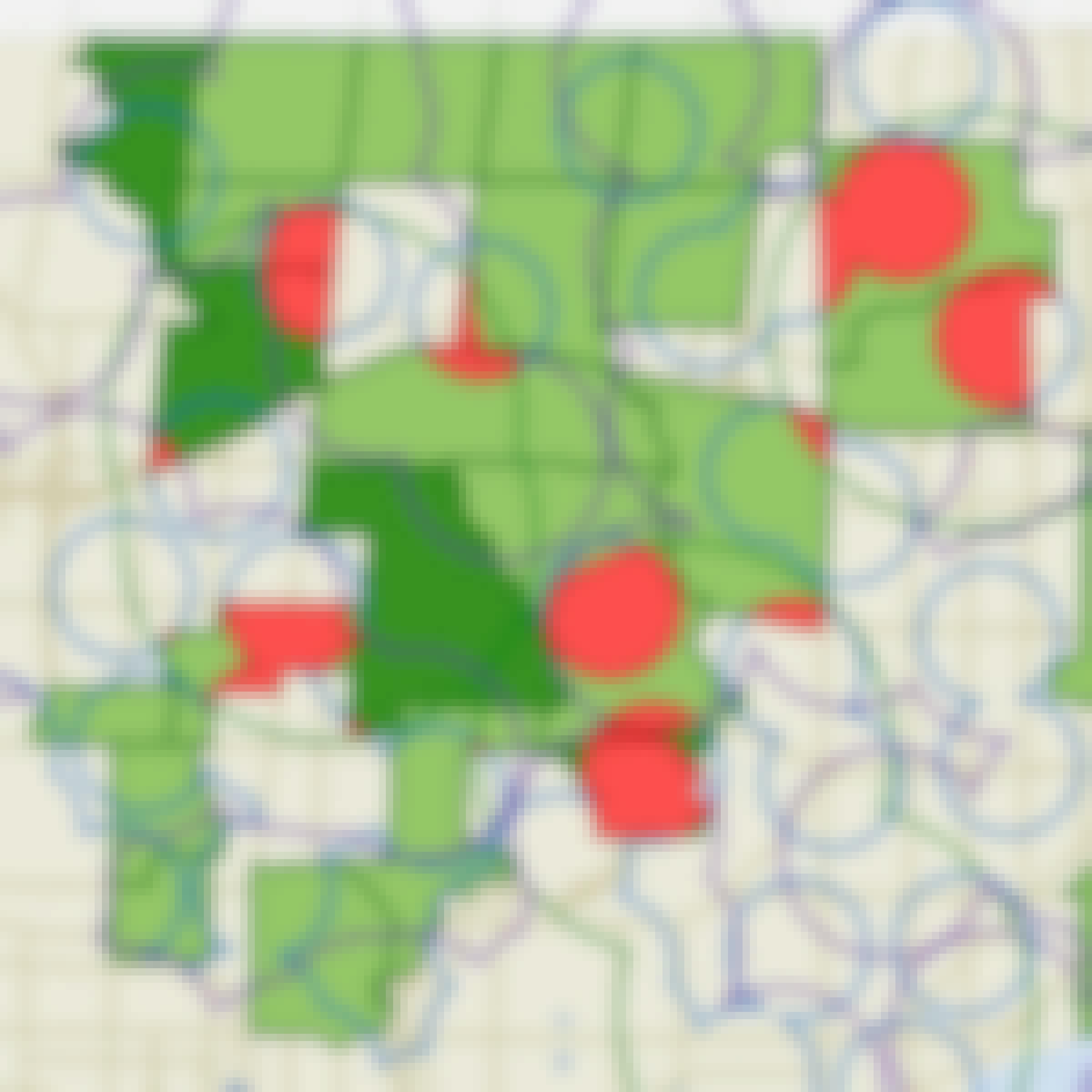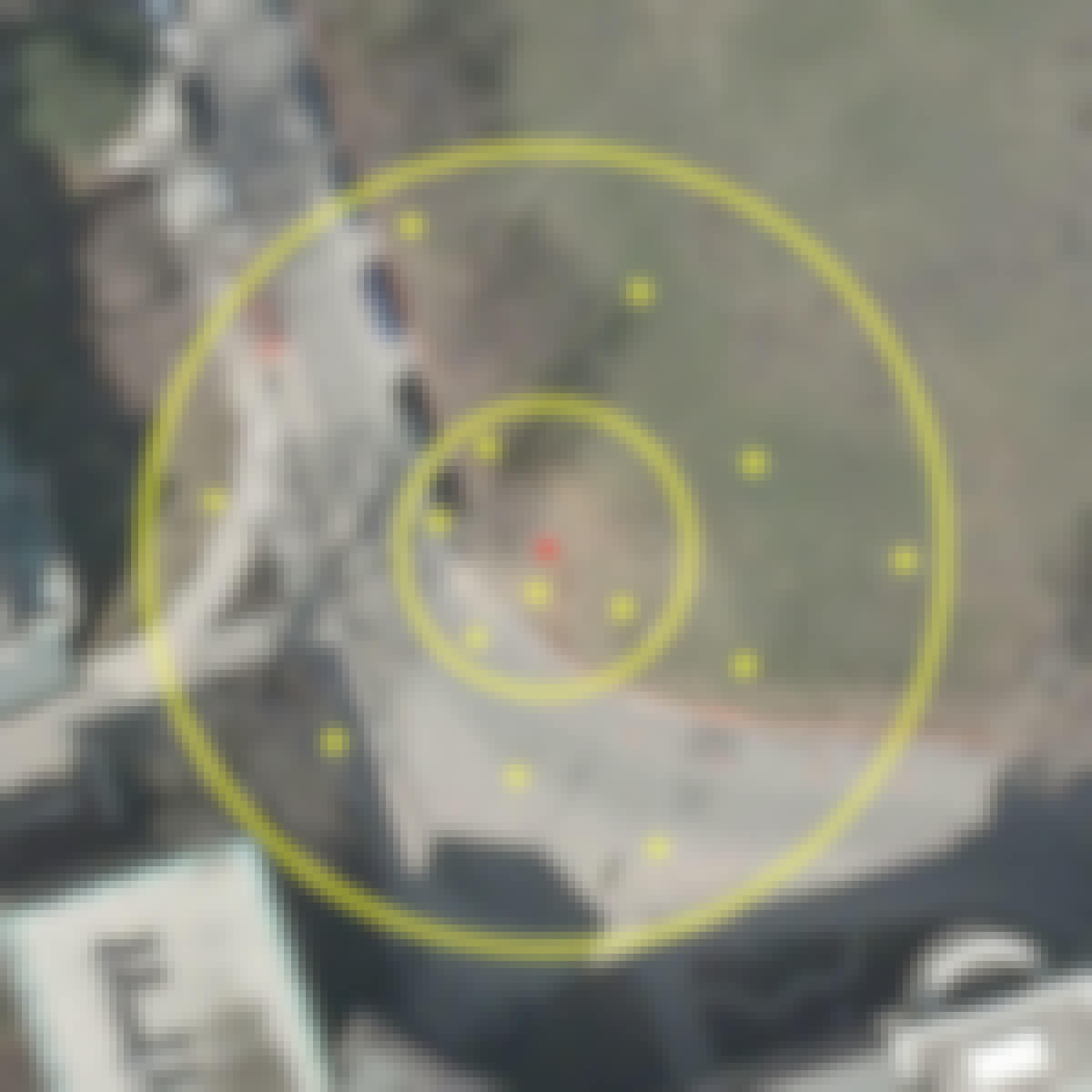Filter by
SubjectRequired
LanguageRequired
The language used throughout the course, in both instruction and assessments.
Learning ProductRequired
LevelRequired
DurationRequired
SkillsRequired
SubtitlesRequired
EducatorRequired
Find the Best GIS Course for Your Goals

 Status: Free Trial
Status: Free Trial
University of California, Davis
Skills you'll gain: ArcGIS, GIS Software, Spatial Data Analysis, Spatial Analysis, Data Storytelling, Geographic Information Systems, Data Presentation, Data Sharing, Geospatial Mapping, Public Health, Land Management, Heat Maps, Metadata Management, Data Quality, Community Health, Data Mapping, Data Visualization Software, File Management, Network Analysis, Data Modeling
 Status: Free Trial
Status: Free Trial
University of California, Davis
Skills you'll gain: ArcGIS, GIS Software, Spatial Data Analysis, Data Sharing, Spatial Analysis, Geographic Information Systems, Geospatial Mapping, Metadata Management, Data Quality, Data Mapping, File Management, Data Presentation
 Status: Free Trial
Status: Free Trial
University of Toronto
Skills you'll gain: ArcGIS, Spatial Data Analysis, Spatial Analysis, Geographic Information Systems, Geospatial Mapping, GIS Software, Data Mapping, Data Visualization, Metadata Management, Query Languages, Global Positioning Systems, Quantitative Research, Data Compilation, Data Modeling, Typography, Data Manipulation, Data Processing, Data Storytelling, Design Elements And Principles, Image Analysis
 Status: Free Trial
Status: Free Trial
University of Toronto
Skills you'll gain: ArcGIS, Spatial Data Analysis, Geographic Information Systems, Geospatial Mapping, Data Mapping, Global Positioning Systems, Data Modeling, Data Capture


Coursera Instructor Network
Skills you'll gain: Geographic Information Systems, Geospatial Information and Technology, Geospatial Mapping, Spatial Data Analysis, Spatial Analysis, Global Positioning Systems
 Status: Free Trial
Status: Free Trial
L&T EduTech
Skills you'll gain: Geospatial Information and Technology, Spatial Analysis, GIS Software, Spatial Data Analysis, Geographic Information Systems, Geospatial Mapping, Database Management, Construction, Construction Management, ArcGIS, Architecture and Construction, Global Positioning Systems, Civil and Architectural Engineering, Decision Support Systems, Building Information Modeling, As-Built Drawings, Survey Creation, Engineering, Scientific, and Technical Instruments, Data Manipulation, Network Analysis
 Status: Free Trial
Status: Free Trial
L&T EduTech
Skills you'll gain: Spatial Analysis, GIS Software, Spatial Data Analysis, Geospatial Mapping, Geographic Information Systems, Building Information Modeling, Data Manipulation, Global Positioning Systems, Network Analysis, Image Analysis, Data Import/Export, Unsupervised Learning, Software Installation, Supervised Learning, UI Components


École Polytechnique Fédérale de Lausanne
Skills you'll gain: Geographic Information Systems, GIS Software, Spatial Data Analysis, NoSQL, Data Modeling, Database Design, Databases, Data Storage Technologies, SQL, Data Storage, Data Capture, Query Languages, Relational Databases
 Status: Free Trial
Status: Free Trial
University of Michigan
Skills you'll gain: Geographic Information Systems, Geospatial Mapping, Spatial Data Analysis, Datamaps, Spatial Analysis, Data Storytelling, Environmental Monitoring, Heat Maps, Forecasting, Trend Analysis
 Status: Free Trial
Status: Free Trial
University of California, Davis
Skills you'll gain: Spatial Data Analysis, Spatial Analysis, ArcGIS, Geographic Information Systems, Geospatial Mapping, Data Quality, Data Mapping, Data Modeling, Data Storage, Data Sharing, Data Manipulation, Relational Databases, Query Languages
 Status: Free Trial
Status: Free Trial
University of Toronto
Skills you'll gain: Spatial Analysis, Geographic Information Systems, Geospatial Mapping, ArcGIS, Data Visualization, Data Compilation, Data Mapping, Data Storytelling, Metadata Management, Data Integration, Data Management
 Status: Free Trial
Status: Free Trial
University of Toronto
Skills you'll gain: Geographic Information Systems, Geospatial Mapping, Data Mapping, Spatial Data Analysis, Data Visualization, Metadata Management, Quantitative Research, Typography, Data Manipulation, Data Modeling, Design Elements And Principles
Searches related to gis
In summary, here are 10 of our most popular gis courses
- Geographic Information Systems (GIS): University of California, Davis
- Fundamentals of GIS: University of California, Davis
- GIS, Mapping, and Spatial Analysis: University of Toronto
- Introduction to GIS Mapping: University of Toronto
- GIS Mastery: Spatial Data, Remote Sensing, Decision Support: Coursera Instructor Network
- Geospatial Techniques for Engineers: L&T EduTech
- Mastering Geospatial Analysis with QGIS: L&T EduTech
- Geographical Information Systems - Part 1: École Polytechnique Fédérale de Lausanne
- GIS: Geographic Information Systems for Sustainability: University of Michigan
- GIS Data Formats, Design and Quality: University of California, Davis










